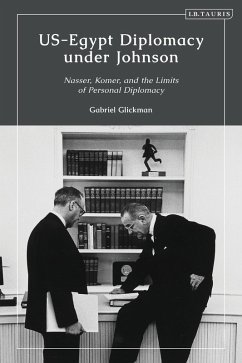What happens to policies when a president dies in office? Do they get replaced by the new president, or do advisers carry on with the status quo? In November 1963, these were important questions for a Kennedy-turned-Johnson administration. Among these officials was a driven National Security Council staffer named Robert Komer, who had made it his personal mission to have the United States form better relations with Egypt's Gamal Abdel Nasser after diplomatic relations were nearly severed during the Eisenhower years. While Kennedy saw the benefit of having good, personal relations with the most influential leader in the Middle East-believing that it was the key to preventing a new front in the global Cold War-Johnson did not share his predecessor's enthusiasm for influencing Nasser with aid. In US-Egypt Diplomacy under Johnson, Glickman brings to light the diplomatic efforts of Komer, a masterful strategist at navigating the bureaucratic process. Appealing to scholars of Middle Eastern history and US foreign policy, the book reveals a new perspective on the path to a war that was to change the face of the Middle East, and provides an important "applied history" case study for policymakers on the limits of personal diplomacy.
Bitte wählen Sie Ihr Anliegen aus.
Rechnungen
Retourenschein anfordern
Bestellstatus
Storno









